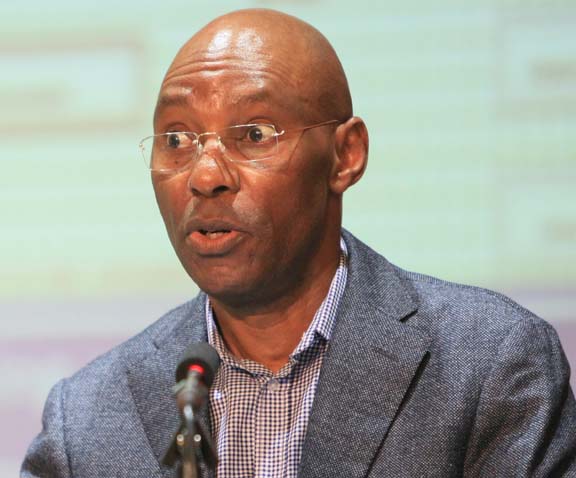There is anger and frustration among a section of persons affected by the impending construction of the East African Crude Oil Pipeline-EACOP, as the project implementers move to secure land in Kyotera and Rakia districts.
The aggrieved include 21 households that will be physically displaced as the government and partners undertake constructions of a 30-meter wide pipeline to transport Uganda’s crude oil from Hoima to the Chongoleani peninsular in Tanga, Tanzania. The project will affect 760 people in the districts of Rakai and Kyotera.
But some of the affected persons in the area, are dissatisfied with the valuation figures that were given to them during the disclosure exercise which was conducted in June by the project implementers.
Joseph Zabasajja, a resident of Lusese village in Nabigasa Sub-county, Kyotera district is one of the affected persons that have come out to dispute compensation figures, even after signing consent forms that were presented to them by the valuation teams. His residential house will be demolished and his modest banana and coffee plantations cleared to open the route for the pipeline.
According to the project’s approved Resettlement Action Plan, Zabasajja qualified for monetary compensation for land and other properties lost as well as getting a new house in which his family will be resettled. The compensation schedule URN has seen indicates that Zabasajja is eligible for a monetary reward of 80.9 million Shillings and a four-bedroom house which will be constructed by the compensating agency.
He is however dissatisfied with the compensation entitlements arguing that they are inadequate to enable his family to regain their full life upon relocation. “What I’m getting in return cannot put us back to the life we are in currently. Much as I appended a signature on compensation forms, it was not done out of will but because of lack of choices,” he says. Zabasajja adds that his properties are worth a monetary value of at least 350 million Shillings.
Zabasajja’s current house has six rooms, while the coffee and banana gardens both seat on 1.6 acres of land and this, he says, is what has sustained his family for decades. He adds that losing all this life in exchange for entitlements that were allocated from the project is illogical.
Abby Kavuma, a resident of Kituntu village in Lwanda Sub-county, Rakai district is also losing two acres of land to the EACOP project, at a compensation cost of 21 million Shillings. His land had banana and coffee gardens, while part of it was used for grazing animals while a small plot of it was being used for subsistence crop cultivation.
But Kavuma disputes the compensation rates that were used to define the value of their properties, saying they are not proportionate compared to the accumulating land prices in the area. He argues that with such a little sum of money, he can hardly obtain a similar piece of land in Rakai district.
Similarly, Sulaina Nambabali, another affected person in Rakai district expresses disappointment that she may not realize her expectation of improving her livelihood using the compensation fees obtained from the project. From her 0.94 acres affected by the pipeline, Nambabali expected at least 50 million Shillings, a figure that doubles that was allocated to her in the valuation report.
Regardless of her current status of occupancy as a tenant on a private mailo, for which she pays annual nominal ground rent of 12,000 Shillings to the landlord, Nambabali argues she would still make reasonable earning if she parcelled the portion into plots for sale to private individuals than forfeiting it to the EACOP project where she attracts meagre returns.
Besides, the sugarcane gardens that will be cleared, Nambabali has two fishponds that were dug about six meters away from the demarcated pipeline route. These were however not listed for compensation, even when in her own assumption, they will be affected because the water flows into the ponds which will interfere with her work as the pipeline infrastructure is laid.
But Angela Nalwanga, the Head of Stakeholders Management and Social Affairs at the East African Crude Oil Pipeline-EACOP project, partly attributes the underlying frustrations to land tenure systems in which many aggrieved PAPs are covered.
She explains that in many parts of the central region, the majority of the project affected persons-PAPs are occupants of Mailo land, where ownership rights are shared between the landlord and occupants, which also leads to sharing of compensation entitlements in percentages of 40 to 60 respectively.
Nalwanga adds that their field teams explained all the modalities to the PAPs during their engagement meetings, advising those who are still unsatisfied with the process to forward their complaints to the project Grievance Management Committees established in their areas for possible review.
He also indicates that some of the uncontended persons could be basing their arguments only on monetary compensations, saying the project has a package of other benefits for the affected persons, some of which include supporting them with alternative livelihood projects, improved housing among others which she says nonmonetary value.
However, her explanation is not convincing to Michael Kalemba who is also destined to forfeit his rights on a 0.7-acre piece of land located in Lwanda trading centre at a gross compensation cost of 7.6 million Shillings as compensation. Kalemba who owns a land title in the area argues that compensation rates used in the project are so unrealistic as compared to apparent value of their properties both for titles and lease and leaseholders.
Kyotera District Chairperson Patrick Kintu Kisekkulo says that they have formally notified the Ministry of Energy and Mineral Development about the public frustration about the project, which qualifies for reassessment of the valuation rates in the area. He warns that the project stands to lose the social contract, should such grievances remain unattended before actual implementation.
Meanwhile, Yisito Kayinga Muddu, the programs coordinator of Community Transformation Foundation Network (COFTONE); a member of Civil Society Coalition on Oil and Gas reveals that their monitoring teams have so far registered 98 people with grievances about the project. He says that they are currently working on modalities of securing for them legal representation to have their concerns argued before courts of law.
The East African Crude Oil Pipeline; a key project in the production and transportation of Ugandans crude oil mineral resource will be executed with a joint partnership between the Uganda National Oil Company-UNOC, Tanzania Petroleum Development Corporation-TPDC, Total Energies, and China National Offshore Oil Corporation Limited, at an estimated investment cost of USD 3.5 billion. The EACOP pipeline route is estimated to occupy a land area of 2,740 acres in Uganda, running a distance of 296-kilometres in ten districts before entering Tanzania.
-URN




